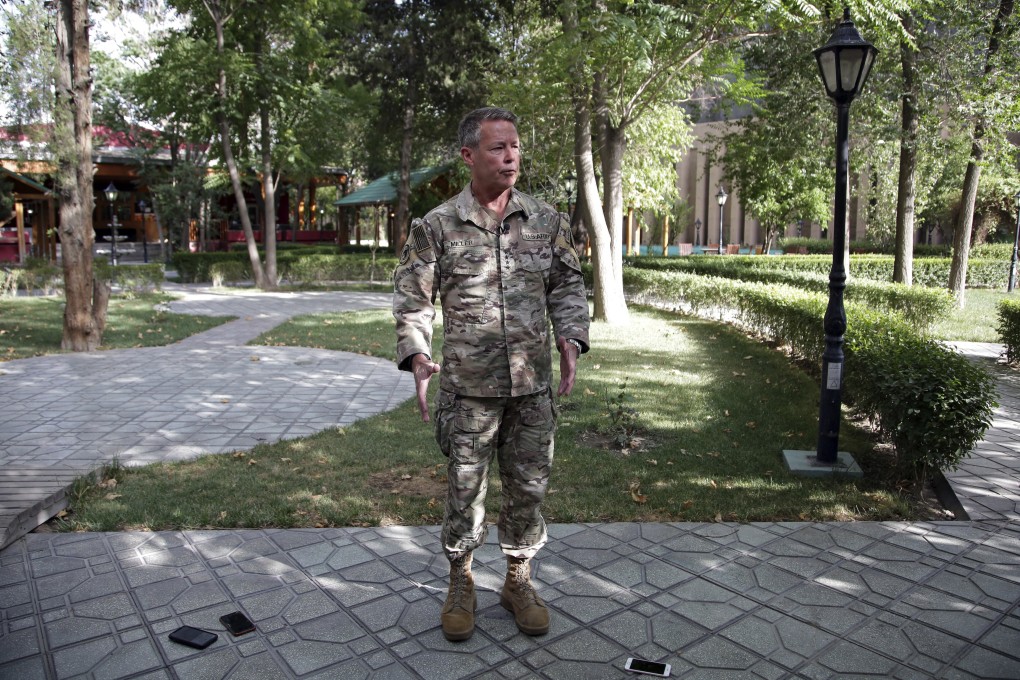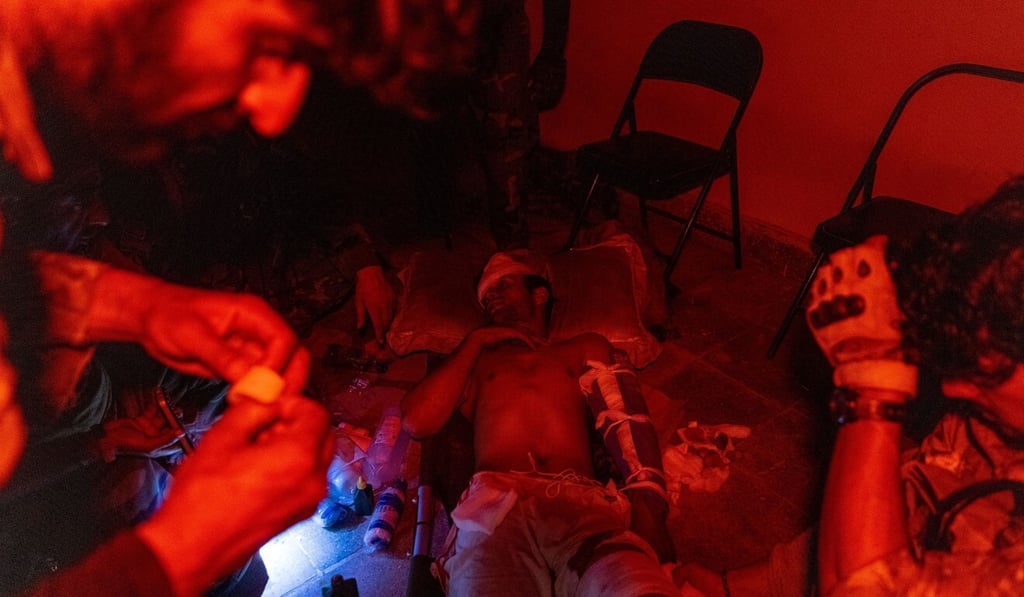Advertisement
Top US general steps down from Afghanistan command amid Taliban surge
- Austin Miller became the last US four-star general on the ground in a symbolic ceremony that brought America’s longest-ever conflict closer to an end
- The move comes as Taliban insurgents continue to gain territory across the country, controlling more now than at any time since the conflict began
Reading Time:3 minutes
Why you can trust SCMP
5

Reutersin Kabul
The US general leading the war in Afghanistan, Austin Miller, relinquished command on Monday in a symbolic ceremony that brought America’s longest-ever conflict a step closer to ending even as Taliban insurgents gained momentum.
Miller became the last US four-star general on the ground in Afghanistan in a ceremony in Kabul that came ahead of a formal end to the military mission on August 31, a date set by President Joe Biden as he looks to extricate his country from the two-decade-old war.
While the ceremony may have offered some sense of closure for US veterans who served in Afghanistan, it is unclear whether it would succeed in reassuring the Western-backed Afghan government as the Taliban press ground offensives that have given them control of more territory than at any time since the conflict began.
Advertisement

US Marine General Kenneth McKenzie, whose Florida-based Central Command oversees US forces in hotspots including Afghanistan, Iraq and Syria, flew into Kabul to underscore America’s future assistance to Afghan security forces.
Advertisement
“Admittedly, it’s going to be very different than it was in the past. I’m not going to minimise that,” McKenzie told a small group of reporters. “But we’re going to support them.”
Advertisement
Select Voice
Select Speed
1.00x